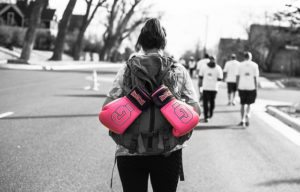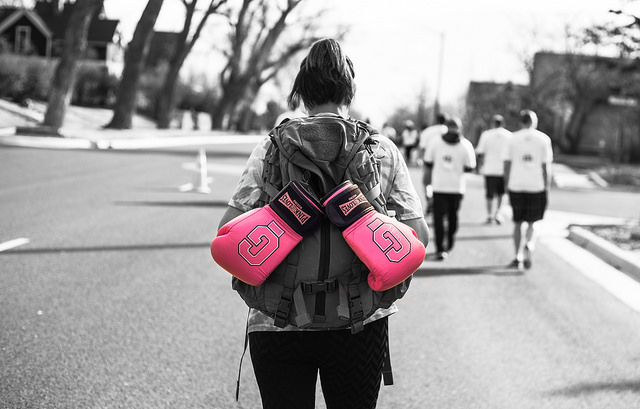>> By Lauren Frey, 2017 Fellow, Women NC
By Lauren Frey, 2017 Fellow, Women NC
During a week in New York this past March attending the United Nations Commission on the Status of Women, I meant to ask Ambassador Nikki Haley about how she felt about the United States’ government’s current efforts or lack of efforts in addressing intimate partner violence when the president who appointed her openly bragged about sexual assault. Ambassador Haley did not show up to her press briefing with nonprofit organizations, so I asked the question to the Deputy U.S. Representative of the Economic and Social Council Stefanie Amadeo: “I am Lauren Frey and I am a university student at North Carolina State University. Given that 1 in 4 college students is a victim or survivor of sexual assault and 1 in 3 adolescents in the United States is a victim or survivor of dating violence, and Ambassador Haley was appointed by a president who has encouraged sexual assault, how will the United States work with the United Nations to tackle violence against women and intimate partner violence in our own country?” Of course, I did not get a satisfying answer.
Despite this frustration in being unable to demand answers from my own government’s representatives at this global conference, the experience was transformative. I attended the United Nations Commission on the Status of Women in New York during the second week of March this year as a student fellow with WomenNC. WomenNC is a nonprofit based in Raleigh that works to raise a generation of young people that honors women’s human rights. Each year, they select a group of student fellows from North Carolina colleges and universities to provide them leadership training, support them in an independent research project, grow their public speaking skills, and present their work at the UN CSW event.
I did my project on dating and sexual violence prevention education in Durham, North Carolina and among other data collection methods, I interviewed staff members at the Durham Crisis Response Center, and sexual assault and domestic violence organizations around the state. My main takeaways were that the local governments, health department, and school system must take on dating and sexual violence as a priority and students need comprehensive, age-appropriate education throughout their entire education experience. The other fellows were Zoe Willingham at Duke University who studied the gender wage gap in Durham and Cristy Villalobos from Meredith College who studied reproductive health services for women and girls who are incarcerated. I got to attend sessions titled “Legal Reforms to Protect the Human Rights of Trans, Intersex, and Gender Variant People” hosted by Malta and the Office of the United Nations High Commissioner for Human Rights and many sessions about prevention programs addressing intimate partner violence. I met activists from all over the world fighting against injustices including sexist hate speech, the unnecessary or inappropriate use of gender markers on legal documents, human trafficking, climate change, economic inequalities, sexual and domestic violence, and incarceration.
I gained a greater understanding of global efforts to combat these issues to improve my perspective back home in North Carolina. When we got back home, we used our new insights to revise our presentations for the Durham County Commissioners and the Durham City Council members. We informed them of our findings on gender equity topics in Durham and provided context for these issues based on the international experience we had gained. These local government officials responded well to our presentations and are making progress in working towards establishing a sustainable mechanism for gender equity issues in Durham. The Durham County Commissioners are likely going to pass a CEDAW (Counties for the Elimination of All Forms of Discrimination Against Women) resolution this fall. This WomenNC fellowship helped build my research skills, my public speaking confidence, and my knowledge of gender issues and in turn I have learned how to be a more effective advocate for gender equity. College and university students who might be interested in this fellowship program should go to >>womennc.org for more information.

There are no comments
Add yours